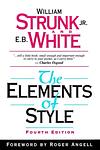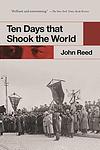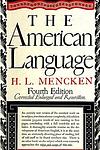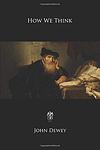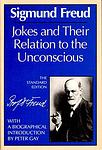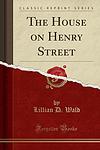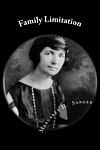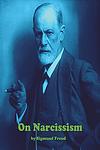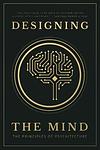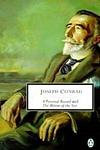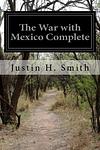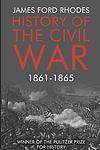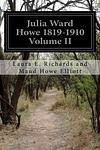The Greatest American, Austrian "Nonfiction" Books From 1910 to 1919
Click to learn how this list is calculated.
This list represents a comprehensive and trusted collection of the greatest books. Developed through a specialized algorithm, it brings together 305 'best of' book lists to form a definitive guide to the world's most acclaimed books. For those interested in how these books are chosen, additional details can be found on the rankings page.
Genres
Countries
Date Range
Reading Statistics
Click the button below to see how many of these books you've read!
Download
If you're interested in downloading this list as a CSV file for use in a spreadsheet application, you can easily do so by clicking the button below. Please note that to ensure a manageable file size and faster download, the CSV will include details for only the first 500 books.
Download-
1. The Elements of Style by E. B. White, William Strunk Jr.
This book is a definitive guide and classic manual on the principles of English language read by millions of readers. The 18 main topics are organized under headings such as Elementary Rules of Usage, Elementary Principles of Composition, A Few Matters of Form, Words and Expressions Commonly Misused, and An Approach to Style. The book's unique tone, wit and charm have conveyed the principles of English style to millions of readers, making it a beloved resource for those who want to write clear, correct and effective prose.
The 331st Greatest Book of All Time -
2. Ten Days That Shook the World by John Reed
This book provides a firsthand account of the Russian Revolution in 1917, specifically focusing on the ten days during which the Bolsheviks seized power. The author, an American journalist, presents a detailed chronicle of the events, people, and emotions during this tumultuous period. His narrative is filled with vivid descriptions and passionate portrayals of the revolutionaries, offering an intimate look into this significant historical event.
The 1071st Greatest Book of All Time -
3. My First Summer in the Sierra by John Muir
This book is a personal narrative of the author's journey through the Sierra Nevada Mountains in California during the summer. The author, a naturalist, describes in detail the stunning landscapes, flora, and fauna he encounters during his exploration. His deep appreciation for nature and wilderness is evident in his vivid descriptions and philosophical reflections. The book serves as a call to preserve and respect the natural beauty of the environment.
The 1519th Greatest Book of All Time -
4. Twenty Years at Hull-House by Jane Addams
"Twenty Years at Hull-House" is a memoir that recounts the author's experiences co-founding and running a settlement house in a poverty-stricken, immigrant neighborhood in Chicago. The book details the struggles and triumphs of the community as they navigate social, economic, and cultural challenges, while also offering insight into the author's own evolution as a social reformer. Throughout, the author emphasizes the importance of empathy, understanding, and community engagement in addressing social inequality.
The 1542nd Greatest Book of All Time -
5. The American Language by H. L. Mencken
This book is a comprehensive study of the English language as it is spoken in the United States. It explores the unique linguistic characteristics, pronunciation, vocabulary, and grammar that distinguish American English from British English. The author also delves into the influences of other languages on American English, the evolution of American slang, and the regional dialects across the United States, providing a detailed and insightful analysis of the American language.
The 2056th Greatest Book of All Time -
6. How We Think by John Dewey
The book explores the process of thinking, emphasizing the importance of education in developing critical thinking skills. It delves into the relationship between thought and language, the role of experience in shaping thought, and the necessity of applying reflective thinking to education. The author argues for a more active, student-centered approach in schools, promoting inquiry and problem-solving to better prepare students for the demands of modern society. The work is both a philosophical treatise and a practical guide for educators seeking to implement more effective teaching methodologies.
The 2779th Greatest Book of All Time -
7. Prejudices by H. L. Mencken
"Prejudices" is a collection of essays that offers a critical and humorous look at American culture and society in the early 20th century. The author provides biting commentary on a variety of topics, including literature, politics, and the arts, while also offering his own unconventional and often controversial viewpoints. The book is known for its satirical style and its critique of American life and values.
The 2779th Greatest Book of All Time -
8. The Unconscious by Sigmund Freud
This book delves into the complex workings of the human mind, exploring the concept of the unconscious. The author posits that our conscious mind is only a small fraction of who we are, and that a vast part of our thoughts, feelings, and behaviors are driven by unconscious processes. He discusses theories on dreams, slips of the tongue, and neuroses, arguing that these are all manifestations of unconscious desires and conflicts. The book provides a foundation for understanding psychoanalysis and the author's influential theories on the human psyche.
The 2845th Greatest Book of All Time -
9. The House on Henry Street by Lillian D. Wald
"The House on Henry Street" is a memoir by a prominent social worker and public health advocate, detailing her experiences and work in the Lower East Side of New York City in the early 20th century. The book chronicles her establishment of a settlement house in the area, which provided a range of services including healthcare, education, and employment assistance to the community. The narrative offers a poignant insight into the struggles and resilience of the immigrant population during this period, and the author's pioneering role in public health nursing and social reform.
The 3462nd Greatest Book of All Time -
10. A Critique of the Theory of Evolution by Thomas Hunt Morgan
The book is a scientific critique of the theory of evolution, presenting arguments and evidence against certain aspects of the theory. The author, a prominent biologist, explores the limitations and inconsistencies in the theory of evolution, challenging the widely accepted Darwinian principles. He presents alternative theories and hypotheses, backed by his own research and observations, to explain the process of species development and genetic inheritance, thereby attempting to provide a more comprehensive understanding of biological evolution.
The 4151st Greatest Book of All Time -
11. The Masters Of Capital by John Moody
"The Masters of Capital" delves into the influential world of American financiers who played pivotal roles in shaping the economic landscape of the early 20th century. The book provides an insightful analysis of how these financial leaders, often referred to as "captains of industry," utilized their wealth and power to impact the development of key industries and influence government policies. Through detailed accounts of their business dealings and personal networks, the narrative explores the complexities of financial power and its far-reaching effects on the American economy and society.
The 5947th Greatest Book of All Time -
12. Family Limitation by Margaret Sanger
"Family Limitation" is a pioneering work that advocates for the importance of birth control and family planning. Written in the early 20th century, the book provides practical information and guidance on various contraceptive methods available at the time, aiming to empower women with the knowledge to make informed decisions about their reproductive health. The author, a prominent birth control activist, argues for the moral and social necessity of family limitation, emphasizing its role in alleviating poverty and improving the welfare of women and children. The book was considered highly controversial during its publication but played a significant role in the birth control movement and the eventual widespread acceptance of contraception.
The 5947th Greatest Book of All Time -
13. The Theory of Economic Development: An Inquiry into Profits, Capital, Credit, Interest, and the Business Cycle by Joseph A. Schumpeter
This book presents a detailed analysis of the mechanisms of economic development, focusing on aspects such as profits, capital, credit, interest, and the business cycle. The author argues that economic development is driven by innovative entrepreneurs who disrupt the status quo, creating new goods and methods of production. He highlights the role of credit in facilitating these innovations, and examines the cyclical nature of economic development. The book also explores the societal and political implications of this process of 'creative destruction'.
The 7168th Greatest Book of All Time -
14. The Future Prospects of Psycho-Analytic Therapy by Sigmund Freud
This book presents an exploration of the potential future of psychoanalytic therapy as seen by its most famous proponent. It discusses the theory and practice of psychoanalysis, its potential benefits and drawbacks, and the challenges faced by the discipline in its continued development. The author also addresses the potential for psychoanalysis to contribute to a broader understanding of human behavior and mental health, and considers the implications of these insights for the future of therapy and counseling.
The 7960th Greatest Book of All Time -
15. Observations on "Wild" Psycho-Analysis by Sigmund Freud
This book is a critique and analysis of psychoanalysis practiced without proper training or understanding. The author argues that such "wild" psychoanalysis can be harmful and misleading, as it often leads to incorrect interpretations and misdiagnoses. The book also discusses the importance of professional training and adherence to established psychoanalytic methods, emphasizing that psychoanalysis is a complex and nuanced discipline that requires a deep and thorough understanding.
The 7960th Greatest Book of All Time -
16. On Narcissism by Sigmund Freud
"On Narcissism" is an influential psychological work that explores the concept of narcissism, which is characterized by excessive self-love or self-centeredness. The author delves into the origins and development of narcissism, distinguishing between primary narcissism seen in infants who have not yet differentiated themselves from the outside world, and secondary narcissism in adults. The book argues that narcissism is a necessary stage in normal development, but can also be a characteristic of various mental health disorders if it persists into adulthood. The author also introduces the concept of the ego ideal, which plays a critical role in the development of the self and its relations to others.
The 7960th Greatest Book of All Time -
17. Instincts and Their Vicissitudes by Sigmund Freud
"Instincts and Their Vicissitudes" is a psychological analysis that explores the concept of instincts, their transformation, and their impact on human behavior. The book delves into the complexities of human instincts, proposing that they can be suppressed, redirected, or even reversed, and discusses their role in shaping our actions, desires, and anxieties. The author also examines the relationship between instincts and the conscious and unconscious mind, offering a comprehensive understanding of human psychology.
The 7960th Greatest Book of All Time -
18. Thoughts for the Times on War and Death by Sigmund Freud
This book is a profound exploration of the psychological impact of war and death on the human psyche. The author, a renowned psychologist, delves into the collective guilt and anxiety experienced by society during wartime, and the denial of death's inevitability as a self-preserving mechanism. He also discusses the disillusionment that arises when the veneer of civilization is stripped away, revealing the primal instincts beneath. The book is a deep, philosophical discussion about the human condition, morality, and the psychological consequences of war and death.
The 7960th Greatest Book of All Time -
19. Repression by Sigmund Freud
This book delves into the concept of repression, a fundamental aspect of psychoanalytic theory. The author explores the idea that individuals often repress memories, particularly those associated with trauma or discomfort, pushing them into the unconscious mind. This repression, however, can lead to various psychological issues such as anxiety, depression, and neurosis. The book also discusses the therapeutic process of making the unconscious conscious, enabling individuals to confront and deal with these repressed memories.
The 7960th Greatest Book of All Time -
20. The Origin and Development of Psycho-Analysis by Sigmund Freud
This book offers an in-depth exploration of the birth and evolution of psychoanalysis as a field of study. The author, a pioneer in the field, delves into the intricacies of the human mind, presenting theories on dream interpretation, the unconscious, and the impact of childhood experiences on adult behavior. The book also provides insight into therapeutic techniques used in psychoanalysis, emphasizing the importance of understanding the underlying causes of psychological disorders for effective treatment.
The 7960th Greatest Book of All Time -
21. Through the Brazilian Wilderness by Theodore Roosevelt
This book is a detailed account of the author's adventurous expedition through the Brazilian wilderness. The journey, fraught with dangers, hardships and thrilling encounters with wildlife, is chronicled in a vivid and engaging style. The author, along with his team, explores uncharted territories, navigates treacherous rivers, and interacts with indigenous tribes, all while documenting the rich biodiversity of the region. The narrative provides a fascinating insight into the challenges of exploration and the wonders of the natural world.
The 8702nd Greatest Book of All Time -
22. A Personal Record by Joseph Conrad
"A Personal Record" is an autobiographical work that offers a glimpse into the life and thoughts of its author, a renowned novelist. The book provides a detailed account of his experiences as a young man leaving his native Poland to embark on a career in seafaring, which later profoundly influenced his literary work. It explores his motivations, personal growth, and the development of his identity as a writer. Through a series of anecdotes and reflections, the narrative delves into the challenges of writing and the intricacies of his artistic vision, presenting a compelling portrait of an artist's journey and the personal history behind his creative output.
The 8726th Greatest Book of All Time -
23. The War with Mexico by Justin H. Smith
"The War with Mexico" is a comprehensive historical analysis of the Mexican-American War from 1846-1848. The book delves into the political, social, and military aspects of the war, providing an in-depth account of the events leading up to the war, the battles fought, and the aftermath. The author critically examines the motivations and actions of both sides, offering a detailed and balanced perspective on this significant period in American history.
The 11112th Greatest Book of All Time -
24. A History of the Civil War by James Ford Rhodes
This book provides an in-depth analysis of the American Civil War, delving into the political, social, and economic factors that led to the conflict. The author explores key events, battles, and figures, offering a comprehensive understanding of the war's causes and consequences. The narrative also examines the role of slavery, the experiences of soldiers, and the strategies of both the Union and Confederate forces, providing a balanced and detailed account of this significant period in American history.
The 11112th Greatest Book of All Time -
25. Julia Ward Howe by Laura E. Richards, Maud Howe Elliott
This biography provides an in-depth look into the life of Julia Ward Howe, a prominent abolitionist and social activist best known for writing "The Battle Hymn of the Republic." The book explores Howe's early life, her marriage, and her growing involvement in social reform movements, including women's suffrage. It also details her literary contributions and her enduring legacy in American history.
The 11112th Greatest Book of All Time
Reading Statistics
Click the button below to see how many of these books you've read!
Download
If you're interested in downloading this list as a CSV file for use in a spreadsheet application, you can easily do so by clicking the button below. Please note that to ensure a manageable file size and faster download, the CSV will include details for only the first 500 books.
Download